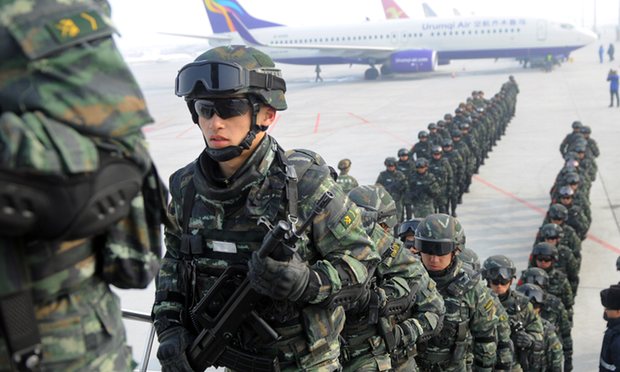China’s leadership scraps internal polls after ‘vote buying’ – China’s latest political and current affairs news
A summary of the top news in Chinese politics and current affairs for October 27, 2017. Part of the daily The China Project newsletter, a convenient package of China’s business, political, and cultural news delivered to your inbox for free. Subscribe here.

A detailed October 26 article (in Chinese) on central state media Xinhua (shorter English version here) has revealed the outlines of the leadership selection process that gave General Secretary Xi Jinping his governing team for his second five-year term. The article attracted attention from many media outlets for these details:
- The article explains that “recommendation processes” — straw polls in which the 375 full and alternate members of the Party’s Central Committee indicate their preference for who should sit on the 25-member Politburo — were abandoned at the 19th Party Congress because they had previously led to “corrupt practices” (弊端 bìduān).
- Specifically, it says that former top politicians Sun Zhengcai 孙政才, Zhou Yongkang 周永康, and Ling Jihua 令计划 — all of whom have been removed from the Party due to corruption — engaged in “vote buying and other non-organizational activities” (贿选等非组织活动 huìxuǎn děng fēi zǔzhī huódòng) during recommendation processes of the 17th and 18th Party congresses.
- Instead of conducting straw polls, Xi Jinping reportedly met face-to-face with current and former political leaders on 57 occasions to solicit recommendations for top leadership, and then the usual horse trading and behind-the-scenes jockeying determined final decisions.
The Financial Times has a compelling explanation (paywall) of the significance of these revelations: Straw polls were a “very limited experiment in democracy” among the various factions of power at the top of China’s leadership, and their elimination may have aided Xi in his mission to diminish the influence of a rival faction, the Communist Youth League. The 17th and 18th Party congresses were times when the League was “at the height of its influence,” and Sun Zhengcai — already disgraced, recently accused (paywall) by state media of plotting a coup, and now blamed for high-level vote buying — was the League’s last chance to maintain a spot on the Politburo Standing Committee.
-
Communist Party leadership
China’s graft tsar draws remarkable political career to close / FT (paywall)
Wang Qishan 王岐山 “arguably did more than any other member of the president’s administration to reassert the party’s authority over spheres from which it had been slowly but steadily withdrawing.”
Shanghai, Guangdong party boss vacancies coming soon, but who’s got what it takes to fill them? / South China Morning Post
Meet the Xi Jinping allies in line to become Chinese leader’s new chief of staff / SCMP -
Data
An inconvenient truth? China omits key figures that may have highlighted its demographic time bomb from official statistics / SCMP -
Taiwan
Ahead of Trump trip, China urges U.S. not to allow Taiwan president in / Reuters -
U.S.
Opinion: China is looking forward to Trump’s truancy at the East Asia Summit / Foreign Policy -
Detained Hong Kong booksellers
Bookseller Gui Minhai ‘half free’ after being detained in China for two years / The Guardian -
Ideology
Xi Jinping Thought to be taught in China’s universities / The Guardian -
Pakistan and India
China defends Pakistan after India, US slam terror ‘safe havens’ / India Today
All soldiers guarding border with China will learn Mandarin, says Rajnath Singh / NDTV
Indo-China: Centre mulls building 50 more outposts at India-China border / Times of India -
Nonprofits
China’s nonprofits mushrooming, but lack qualified people / Nikkei Asian Review (paywall)






